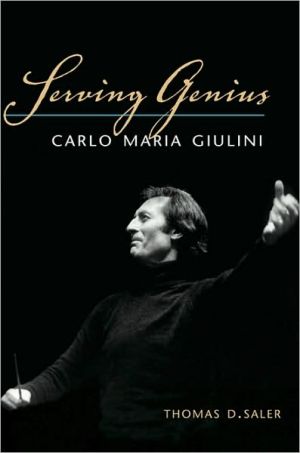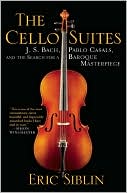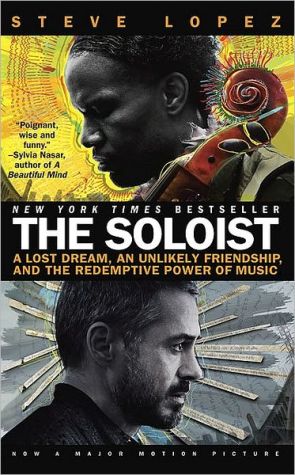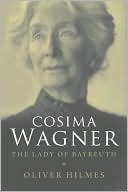Serving Genius: Carlo Maria Giulini
Serving Genius tells the life story of Carlo Maria Giulini, one of the most renowned and beloved conductors of the twentieth century. Detailing Giulini's extraordinary professional career, Thomas D. Saler also chronicles Giulini's personal life, including his musical awakening while growing up amid the spectacular beauty of the Dolomite mountains, his years as a student in Rome's Academy of St. Cecilia, his conscription into the Italian army during World War II, his nine months in hiding for...
Search in google:
Serving Genius tells the life story of Carlo Maria Giulini, one of the most renowned and beloved conductors of the twentieth century. Detailing Giulini's extraordinary professional career, Thomas D. Saler also chronicles Giulini's personal life, including his musical awakening while growing up amid the spectacular beauty of the Dolomite mountains, his years as a student in Rome's Academy of St. Cecilia, his conscription into the Italian army during World War II, his nine months in hiding for his anti-fascist and pacifist beliefs, and his selfless devotion to his wife, Marcella. A humble master who shunned the limelight, Giulini took a deeply emotional and subjective approach to making music. Saler provides uniquely detailed analysis of Giulini's nuanced musicianship and the way he conveyed that musicianship to the orchestra through physical gestures. Meditating on the very art of conducting at which Giulini excelled, Saler discusses each of the conductor's major musical appointments, including stints with the Chicago Symphony Orchestra, Philharmonia Orchestra, Vienna Symphony, and Los Angeles Philharmonic. The book also addresses his repertoire of choice, leadership style, and moral framework. Drawing on extensive interviews with Giulini's family, music critics, arts administrators, orchestra members, and collaborating soloists, Serving Genius draws out the personal amid the professional life of this giant among twentieth-century conductors.
Serving Genius\ Carlo Maria Giulini \ \ By Thomas D. Saler \ University of Illinois Press\ Copyright © 2010 the Board of Trustees of the University of Illinois\ All right reserved.\ ISBN: 978-0-252-03502-9 \ \ \ Chapter One\ Beauty and Betrayal \ As a child in the small municipality of Ponti sul Mincio near the shores of Lago di Garda in northern Italy, the four-year-old Carlo Maria Giulini was entranced by more than the breathtaking beauty of the area. Fascinated, he watched a street musician playing his violin for donations in the grim economic aftermath of the First World War. Though he didn't know what the instrument was called, he knew he had to have one. Before Christmas 1919, he asked his mother for "that strange thing" the man was holding. "From there began my adventure," he said of the journey that would make him one of the most accomplished and beloved musicians of the twentieth century.\ The remarkable life of Carlo Maria Giulini began at 4:45 P.M. on May 9, 1914, in Barletta on Italy's rugged Adriatic coast, about two hundred miles southeast of Rome. His father, Ernesto, was a timber salesman from a middle-class background who had fallen in love with Antonietta Festner, the daughter of an officer of his employer, the Feltrinelli Company, then one of the world's largest timber producers. (Though her paternal grandmother was Austrian, Giulini's mother was born in Naples and grew up in Verona, where she met her husband.) After the couple was married, Ernesto was sent to fill an opening in Feltrinelli's Barletta branch office. The post was not considered desirable, especially for a family with Austrian and northern Italian roots. Nonetheless, Giulini's parents lived in Barletta for about two years, and it was there that Carlo and his older brother, Stefano (Steno), were born. It also was in Barletta that Giulini's lifelong love of nature was born; though still a toddler, he was overwhelmed by the lush colors of the Adriatic sea. (In June 2006, the mayor of Barletta unveiled a plaque at the site of Giulini's birth; the house on via Trani is now known as Casa Giulini.) When his father was called to serve in the Alpine Corps of the Italian army in World War I, mother and sons moved to Ponti sul Mincio, where his father had lived as a child.\ After returning home from military service, Ernesto started his own timber business in Milan and relocated his family about 170 miles northeast of the city in Bolzano, in the heart of the Dolomite Mountains. The region was formerly part of Austria but was occupied by the Italian army during the war and came under Italian rule as part of the Treaty of London in 1915. Giulini's childhood was a happy one; his parents were reasonably well-off financially and never exchanged an unkind word. The family lived on the outskirts of town near a seventeenth-century Benedictine convent and were among the first Italian families to move to the area, which remained German-speaking after the war. Culture in the area was more South Austrian than Italian and exposed the impressionable boy to Viennese waltzes, marches, and songs, as well as to Bohemian and Hungarian folk tunes.\ Besides his sudden infatuation with the violin, there were other signs of young Carlo's attraction to music. In Barletta, he would wave his arms as if conducting while listening to Sunday-afternoon concerts. Later, after the family had moved to Bolzano, he watched transfixed through a cellar window as the town band rehearsed, gripping the bars protecting the window so tightly that his mother had difficulty pulling him away. At Christmas 1919, five-year-old Carlo received his first violin and soon began violin lessons with a nun at the Bolzano kindergarten. After only a few months, however, the nun told his mother—who was a talented pianist, although Carlo did not know this at the time—that she had taught her precocious child everything she knew about the instrument. Carlo next studied with a teacher at the Bolzano music school, but even that more advanced level of instruction proved inadequate. By chance, the Giulinis lived near a pharmacy operated by a Bohemian violinist who was to become like a second father to Carlo. Before long, the young boy was going to the home of his older friend—whom he called Brahms—twice a week for lessons and to play duets.\ When Carlo was fourteen, the renowned violinist Remy Principe came to Bolzano to give a recital. Principe was the former teacher of Giulini's violin instructor at the Bolzano music school, a connection that led to Carlo's selection to turn pages for him during the recital. Afterward, the young boy played an audition for Principe, who was so impressed that he suggested Carlo study under him at the prestigious Accademia di Santa Cecilia in Rome. Principe's invitation was timely; by now, Giulini knew that if he was going to make a living as a musician he would have to dedicate himself to the profession and study with well-known teachers at a respected musical institution.\ In 1930, at the unusually young age of sixteen, Giulini traveled the 430 miles south from Bolzano to Rome, where he enrolled at the Accademia, which in the 1930s was considered one the best musical institutions in the world. Giulini studied viola with Principe (having been switched from violin at his new teacher's suggestion to accommodate his large hands), conducting with Bernardino Molinari, and composition with Alessandro Bustini. Although he was considered an outstanding violist, Giulini said that being a string player did not come naturally to him. (Naturalness was important to him; later in his life, Giulini opened his viola case, intending to practice. He picked up the instrument and began to play. Before long he put it down, saying that playing the viola no longer felt natural to him. He never played another note.) Giulini attributed his success as a violist to long hours of practice (about five per day) and not to an abundance of talent. He also formed a string quartet with fellow students.\ Giulini considered the school a kind of "sacred monster," fearing its extreme rigor yet holding its artistic mission in "reverential awe." He was particularly afraid of the solfège exam, which he said heal ways "massacred" but nonetheless passed. Training was exceptionally severe and formal, and Giulini often was at the limits of his endurance, saying that he sometimes wanted to "escape." On one such occasion, he turned in a composition assignment to Bustini, who asked him why he used a certain harmony. "Because I felt it," Giulini replied, displaying the conviction and stubbornness that persisted long beyond his youth. "Giulini was easy to talk to but difficult to convince," his friend and admirer Lord Harewood would say later.\ Giulini came to view the conservatory's many challenges as a kind of musical nourishment and was glad that he had stayed and graduated. "[Bustini] always said, 'I can't give you genius, but I can give you the tools of the craft,'" recalled Giulini, who became sufficiently adept with those tools that he briefly considered a career as a composer. Though he was a competent craftsman, he detected in himself none of the genius he recognized in the master composers. To complete one assignment for Bustini, Giulini orchestrated Mussorgsky's piano score of Pictures at an Exhibition. "I was very fond of these pieces and thought how good it would be to orchestrate them," he said later. "I knew nothing of the Ravel score at the time. When I discovered it, I was amazed—and grateful. It showed me the gulf that exists between merely knowing how to do something and genius." He also was amazed at how unobtrusively Ravel had imposed himself on the work, a goal he sought in his own conducting. "How he entered Mussorgsky's world so completely is unbelievable to me," he said. "I hear only Mussorgsky, not Ravel."\ After graduating from the Accademia in 1932, Giulini continued to study composition privately from Bustini in coursework that he called "very, very severe." During that period, he wrote a composition for the piano, but the composer was not impressed with his results. "I had nothing to say," Giulini acknowledged. "There was no reason to say something that somebody else said much better." Among the composers who Giulini thought said things "much better" were several of his classmates at the Accademia, including Bruno Maderna, Guido Turchi, Gherardo Macarini Carmignani, and Armando Renzi. (Giulini later would conduct several of their compositions, including the premiere of Turchi's Adagio for Orchestra—Prelude to a Long Journey, which Giulini commissioned and performed at his final concert as music director of the Los Angeles Philharmonic in April 1984.)\ Giulini's student days in Rome left little time for anything other than music. He rented a room in an old, unheated boarding house from two elderly ladies he called aunts. Whatever the inadequacies of his lodgings—bed warmers were required during the winter—its location on via del Babuino was blocks from the Accademia and an equally short distance from the eastern banks of the Tiber River. Giulini would rise early each morning and walk to the Accademia on via Vittoria for his composition class with Bustini and his viola lesson from Principe, which were followed by an orchestra rehearsal with Molinari at ten o'clock. Giulini would do his composition homework over lunch, then work several hours of viola practice around another orchestra rehearsal in the afternoon. After a dinner often consisting of two suppli (breaded, fried rice balls with meat, cheese, and sauce), he would rehearse in the evening with the string quartet that he formed. Giulini would arrive back at his boarding house near midnight to find another dinner—albeit cold—prepared for him by his "aunts." Then it was more studying, and finally to bed. After exams, Giulini and a few friends might take a bus to a nearby park for a game of soccer, to be followed by a big plate of tagliatelle, a pasta dish similar to fettuccine. Once, Giulini treated himself to a movie at the then-extravagant price of five lira. But such "rewards" were rare and, Giulini said, not the result of excessive self-discipline on his part. "I did not represent an exception; we were all like that," he said.\ Giulini soon began to worry about how he would earn a living following graduation. His father had suffered severe financial losses in the economic crisis that struck Italy in the 1930s, and Carlo did not want to be a burden on his family. In an effort to support himself, he auditioned for a paid position in the viola section of Rome's Augusteo Orchestra, a world-class ensemble and the "most important symphonic institution in Italy" in the 1920s and 1930s. Giulini considered it a great era in the history of Italian music. Among the conductors visiting Rome to perform with the Augusteo Orchestra were Victor de Sabata, Otto Klemperer, Bruno Walter, Wilhelm Furtwängler, Fritz Reiner, Paul Hindemith, Richard Strauss, Pierre Monteux, and Igor Stravinsky. "Every encounter with these artists was an event," Giulini said. The only prominent musician absent from the list was Arturo Toscanini, who refused to conduct in his homeland out of antipathy for Mussolini and the fascists.\ When the news arrived that he had won the audition for a spot in the orchestra, the eighteen-year-old Giulini cried for joy. A half-century later, he still remembered the moment clearly: He was eating dinner at his boarding house when the phone rang; on the line was an official from the Accademia informing him that he had won the position of last viola in the Augusteo Orchestra. Overwhelmed with emotion, Giulini felt faint and was unable to speak. He would always consider that phone call as the most beautiful memory of his life. Giulini's experience in the Augusteo surpassed even his own high expectations. He once compared playing under Walter and Klemperer to "drinking fresh water from the spring ... something that starts to be a part of your body."\ Though he had no plans to become a conductor when he auditioned for the orchestra, Giulini's tenure in the Augusteo provided the inspiration and expertise that would eventually define his career on the podium. First, however, there was a serious case of nerves to be conquered. "The first time, due to excitement, was traumatic," Giulini recalled of his initial rehearsal with the Augusteo Orchestra, presided over by Molinari. "I was still on the third line, and the colleague with whom I shared a stand was already turning the page," he said. Giulini's first public appearance with the Augusteo was under Bruno Walter's baton in a concert that included the Brahms First Symphony. He was immediately impressed by Walter's ability to make every musician feel important. Giulini himself would become known for his spirit of communal music making, and he often said that it was Walter who taught him the importance of working together. "[Walter] had an extraordinary capacity to make the whole orchestra part of the musical event," Giulini said. "He was not a conductor who represented authority; he was an artist who made music together with others."\ Besides communal music making, there were many other lessons to be learned, though not from Stravinsky, whom Giulini respected as a composer but considered a "disaster" as a conductor. In 1939, Richard Strauss accepted an invitation to Rome for a concert with the Augusteo Orchestra to commemorate the composer-conductor's seventy-fifth birthday. Given Strauss's legendary stature, his appearance in the city was considered an important artistic event. Molinari had painstakingly prepared Strauss's own Don Juan, and the orchestra knew it cold; as it turned out, perhaps too cold. After a few measures of the first rehearsal, Strauss held up his hand and asked the musicians to stop. "Gentleman, you do play all the notes, to the perfection," Strauss told the orchestra. "But this is not what I need. Music is also made of other things." Giulini considered it another lesson learned. "We had attained formal perfection," he said, "but there was no soul."\ Though Giulini studied conducting at the Accademia from Molinari and played under him in the Augusteo Orchestra, it does not appear that the older man was an important influence on Giulini's musicianship or approach to conducting. Molinari was the Augusteo Orchestra's artistic director and principal conductor for forty-one years following its founding in 1912 and was respected as an "orchestra trainer" by his peers and composers alike. However, his podium methods were dictatorial, an approach Giulini loathed. Rehearsals were intense, with Molinari often asking individuals or stands to play difficult sections alone. It was the only aspect of his experience in the Augusteo that Giulini did not like, but it taught him a valuable lesson. "I saw some people suffer," he said. "It was cruel."\ Perhaps equally important to Giulini, Molinari was on friendly terms with Mussolini, a relationship that enabled the orchestra to gain government funding for various projects, including a tour of Nazi Germany. It is likely that Giulini—an ardent antifascist—resented Molinari's politics. Yet while there is some evidence that Molinari was "a believer" in fascism, political conditions under the regime were such that many musicians, including those harboring a secret antipathy for il Duce, felt compelled to curry favor with the party to advance their careers, or simply to make a living during challenging economic times. Many performers even joined the Fascist party to keep themselves out of political trouble. Mussolini's office maintained dossiers on virtually all important musicians of the day, but Giulini seems not to have been among them, probably because his status as a last-desk violist—albeit in the country's most important orchestra—was considered too minor to concern authorities.\ In 1938, Giulini met Marcella de Girolami, the twenty-two-year-old daughter of a Roman industrialist whose company sold hydraulic plumbing equipment and other water-related supplies to building manufacturers. Marcella handled the firm's accounting, and her tiny office was across the street from the Accademia de Santa Cecilia. Through the window, she often would see Carlo as he arrived or left, and she was encouraged by a friend of her sister to make his acquaintance. After learning his name, she phoned often, but each time she coyly declined to identify herself. Eventually, however, the two met, and four years later they married. "Viva telephono," Marcella said about the circumstances of their meeting.\ (Continues...)\ \ \ \ \ Excerpted from Serving Genius by Thomas D. Saler Copyright © 2010 by the Board of Trustees of the University of Illinois. Excerpted by permission of University of Illinois Press. All rights reserved. No part of this excerpt may be reproduced or reprinted without permission in writing from the publisher.\ Excerpts are provided by Dial-A-Book Inc. solely for the personal use of visitors to this web site. \ \
Contents\ Preface....................ix\ Acknowledgments....................xiii\ Abbreviations....................xv\ 1. Beauty and Betrayal....................1\ 2. Mastering the Melodrama....................15\ 3. Prometheus in London....................33\ 4. Amore: The Chicago Years....................52\ 5. Molto, Molto, Espressivo....................87\ 6. Out of Eden....................117\ 7. Peace, Love, and Pleated Pants....................126\ 8. Days of Wine and Roses....................139\ 9. Wearing the Garment of Tragedy....................173\ Notes....................189\ Interview List....................213\ Index....................215\ Illustrations follow page....................86








